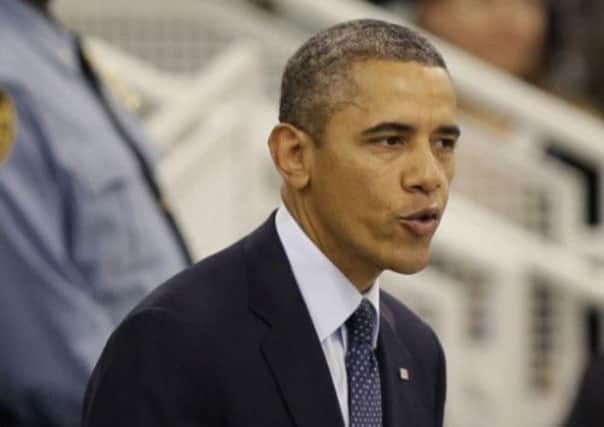Obama holds door open to diplomatic talks with Iran


Striking a cautiously optimistic tone in a speech to the United Nations general assembly, Mr Obama said he was determined to test president Hassan Rouhani’s recent overtures and challenged him to take concrete steps toward resolving Iran’s long-running nuclear dispute with the West.
“Conciliatory words will have to be matched by actions that are transparent and verifiable,” Mr Obama told the annual gathering of world leaders in New York.
Advertisement
Hide AdAdvertisement
Hide AdMr Rouhani’s recent gestures – including an agreement to renew long-stalled talks with world powers on its nuclear programme – have raised hopes for a historic opening in relations between Washington and Tehran after more than three decades of estrangement.
The White House has left open the possibility that Mr Obama and Mr Rouhani could meet – at least for a handshake on the UN sidelines. Even a fleeting encounter would be important, given that it would be the first face-to-face contact between US and Iranian heads of government since before the 1979 Islamic revolution that ousted the Washngton-backed shah.
But differences over Iran’s nuclear programme and scepticism about Mr Rouhani’s intentions, especially from US lawmakers and close US ally Israel, have cast doubt on the prospect for any immediate breakthrough between Washington and Tehran.
Seeking to keep expectations under control, Mr Obama said suspicions between the two countries were too entrenched to believe their troubled history could be overcome overnight. “The roadblocks may prove to be too great, but I firmly believe the diplomatic path must be tested,” Mr Obama said.
The US president suggested that Mr Rouhani’s recent overtures could provide the basis for an elusive deal to curb Iran’s nuclear ambitions and said he had instructed US secretary of state John Kerry to mount a diplomatic effort along with other world powers. But Mr Obama stopped short of offering any concessions, such as a softening of sanctions that have crippled Iran’s economy.
The president reaffirmed a pledge that his administration would not tolerate Iran’s development of nuclear weapons, but avoided repeating his previous assertion that all options are on the table – code for possible military action – in dealing with the Iranian nuclear issue.
French president François Hollande said he expects “concrete gestures” by Iran to show it will give up its military nuclear programme and that while he will meet with the Iranian president on the UN sidelines, he is still firm on nuclear non-proliferation.
Mr Obama cited resolving the Iranian nuclear standoff and reaching an Israeli-Palestinian peace deal as his two main policy priorities in the Middle East, efforts that he said he believes can help bring stability to the volatile region.
Advertisement
Hide AdAdvertisement
Hide AdHe also urged the UN Security Council to approve a strong resolution aimed at ensuring Syria keeps its commitments to give up its chemical weapons, and said the United States will provide an additional $340 million (£212m) in humanitarian aid. Iran is a key ally of Syrian president Bashar al-Assad.